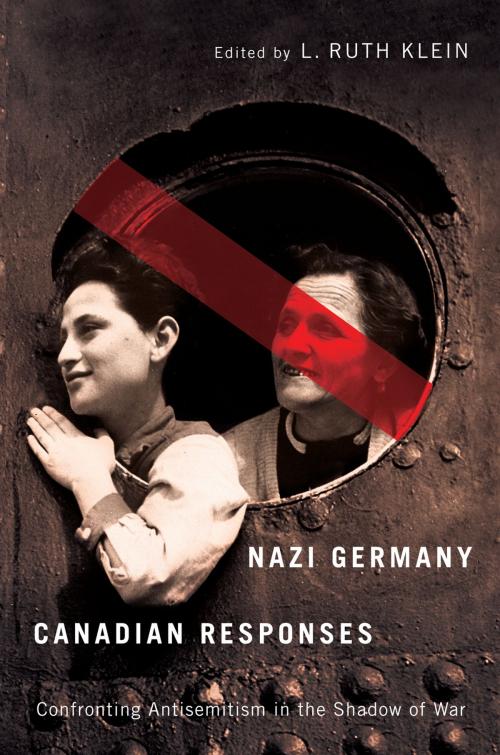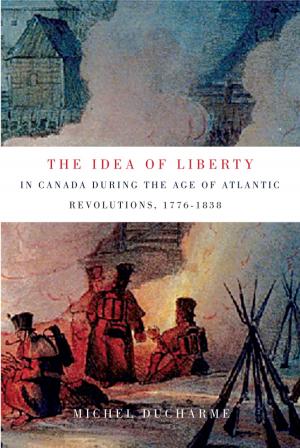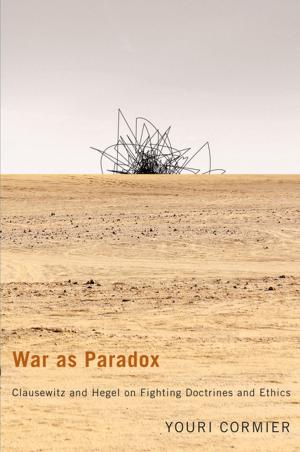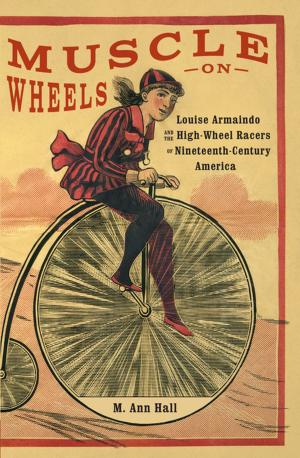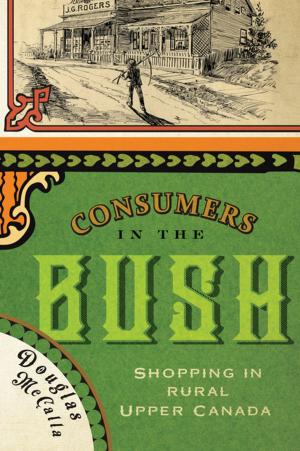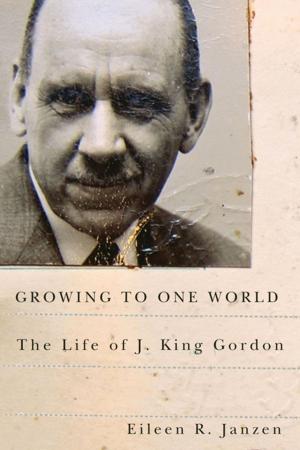Nazi Germany, Canadian Responses
Confronting Antisemitism in the Shadow of War
Nonfiction, Social & Cultural Studies, Social Science| Author: | ISBN: | 9780773587373 | |
| Publisher: | MQUP | Publication: | May 23, 2012 |
| Imprint: | MQUP | Language: | English |
| Author: | |
| ISBN: | 9780773587373 |
| Publisher: | MQUP |
| Publication: | May 23, 2012 |
| Imprint: | MQUP |
| Language: | English |
It has been thirty years since the publication of Irving Abella and Harold Troper's seminal work None is Too Many, which documented the official barriers that kept Jewish immigrants and refugees out of Canada in the shadow of the Second World War. The book won critical acclaim, but a haunting question remained: Why did Canada act as it did in the 1930s and 1940s? Answering this question requires a deeper understanding of the attitudes, ideas, and information that circulated in Canadian society during this period. How much did Canadians know at the time about the horrors unfolding against the Jews of Europe? Where did their information come from? And how did they respond, on both public and institutional levels, to the events that marked Hitler's march to power: the 1935 Nuremberg Race Laws, the 1936 Olympics, Kristallnacht, and the crisis of the MS St Louis? The contributors to this collection - scholars of international repute - turn to the wider public sphere for answers: to the media, the world of literature, the university campus, the realm of international sport, and networks of community activism. Their findings reveal that the persecutions and atrocities taking place in Nazi Germany inspired a range of responses from ordinary Canadians, from indifference to outrage to quiet acquiescence. It is challenging to recreate the mindset of more than seventy years ago. Yet this collection takes up that challenge, digging deeper into archives, records, and testimonies that can offer fresh interpretations of this dark period. The answer to the question "why?" begins here. Contributors include: Doris Bergen, Chancellor Rose and Ray Wolfe Chair in Holocaust Studies, University of Toronto, Richard Menkis, Department of History, University of British Columbia; Harold Troper, Department of Theory and Policy Studies in Education, OISE/University of Toronto; Amanda Grzyb, Faculty of Information and Media Studies, University of Western Ontario; Rebecca Margolis, Centre for Canadian Jewish Studies, University of Ottawa; Michael Brown, Department of Languages, Literatures and Lingustics, York University; Norman Ravvin, Institute for Canadian Jewish Studies, Concordia University; and James Walker, Department of History, University of Waterloo.
It has been thirty years since the publication of Irving Abella and Harold Troper's seminal work None is Too Many, which documented the official barriers that kept Jewish immigrants and refugees out of Canada in the shadow of the Second World War. The book won critical acclaim, but a haunting question remained: Why did Canada act as it did in the 1930s and 1940s? Answering this question requires a deeper understanding of the attitudes, ideas, and information that circulated in Canadian society during this period. How much did Canadians know at the time about the horrors unfolding against the Jews of Europe? Where did their information come from? And how did they respond, on both public and institutional levels, to the events that marked Hitler's march to power: the 1935 Nuremberg Race Laws, the 1936 Olympics, Kristallnacht, and the crisis of the MS St Louis? The contributors to this collection - scholars of international repute - turn to the wider public sphere for answers: to the media, the world of literature, the university campus, the realm of international sport, and networks of community activism. Their findings reveal that the persecutions and atrocities taking place in Nazi Germany inspired a range of responses from ordinary Canadians, from indifference to outrage to quiet acquiescence. It is challenging to recreate the mindset of more than seventy years ago. Yet this collection takes up that challenge, digging deeper into archives, records, and testimonies that can offer fresh interpretations of this dark period. The answer to the question "why?" begins here. Contributors include: Doris Bergen, Chancellor Rose and Ray Wolfe Chair in Holocaust Studies, University of Toronto, Richard Menkis, Department of History, University of British Columbia; Harold Troper, Department of Theory and Policy Studies in Education, OISE/University of Toronto; Amanda Grzyb, Faculty of Information and Media Studies, University of Western Ontario; Rebecca Margolis, Centre for Canadian Jewish Studies, University of Ottawa; Michael Brown, Department of Languages, Literatures and Lingustics, York University; Norman Ravvin, Institute for Canadian Jewish Studies, Concordia University; and James Walker, Department of History, University of Waterloo.
